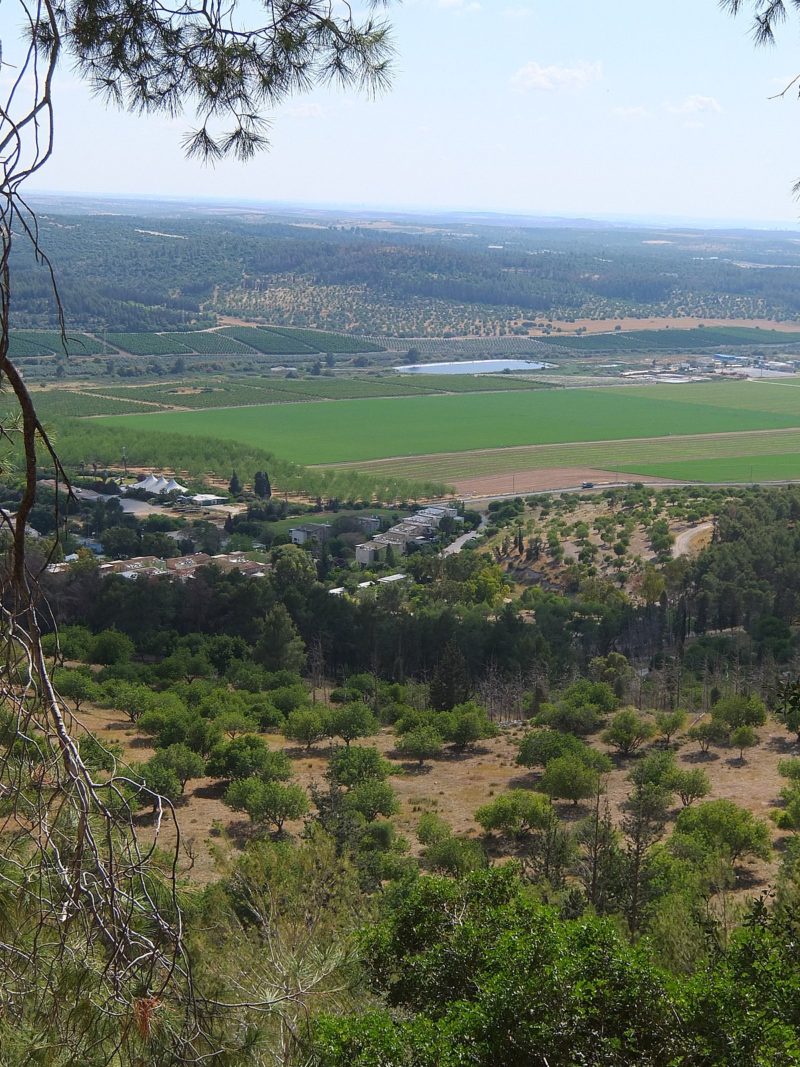An intelligible universe has practical implications for every area of life. Let’s consider three of the classical disciplines: science, economics, and education.
Science: Thinking God’s Thoughts in God’s Universe
In the eighteenth century William Carey exploded most modern conceptions of what a “missionary” does. Why? Because he believed humans are God’s vice-regents to unlock the earth’s potential, helping our fellow human beings learn how to rule over and care for creation. Science and technology help us see how God designed the universe. To a point, they give us mastery over the physical world.
Many Indians were subject to astrology; Carey wanted to introduce them to astronomy. They saw the heavenly bodies as governing deities; he knew that human beings  were created to govern nature, and the sun, moon, and planets were given as signs or markers to assist us in that task. They divide space into directions—East, West, North and South—and time into days, seasons and years. They make calendars possible, enable geography and history, make it possible to plan our lives. Astronomy freed us from the rule of astrology.
were created to govern nature, and the sun, moon, and planets were given as signs or markers to assist us in that task. They divide space into directions—East, West, North and South—and time into days, seasons and years. They make calendars possible, enable geography and history, make it possible to plan our lives. Astronomy freed us from the rule of astrology.
Only a biblical theist such as Carey could embrace science. Science was born out of a Judeo-Christian worldview. Many of the men and women who founded today’s scientific disciplines were believers. An animistic scientist is an oxymoron, like a square circle. The animist doesn’t study nature; he deifies it. Likewise, the Hindu regards the visible world as illusion. Why study what is not real?
In contrast, Christians accept nature as real, as God’s handiwork. The creation is good, worthy of study and care. Because it was spoken into existence by the Supreme Lawgiver, the universe is orderly, governed by natural law. Once we have discovered creation’s order through science, we can exercise dominion over it and improve our lives through technology.
Yet physical laws do not get the final word. We live in an open system—open to God, angels, and man. Because God created natural law, He is not bound by it.
Paul Davies is a professor at Arizona State University and Director of BEYOND: Center for Fundamental Concepts in Science. While accepting the Templeton Prize, Davies noted,
All the early scientists, like Newton, were religious in one way or another. They saw their science as a means for uncovering traces of God’s handiwork in the universe. What we now call the laws of physics they regarded as God’s abstract creation: thoughts, so to speak, in the mind of God. So in doing science, they supposed, one might be able to glimpse the mind of God—an exhilarating and audacious claim.[i]
Audacious, perhaps, but also solidly biblical. “It is the glory of God to conceal a matter; to search out a matter is the glory of kings” (Prov. 25:2).
Economics: The Economy of Mind
Economics deals with more than money, jobs, supply and demand. In a theistic perspective, economics (from oikonomia, Greek for “household management”) is a moral philosophy. As God’s stewards we take care of His “house.”
 Economic journalist Warren T. Brookes states that “wealth is not physical, but metaphysical; that it is to be found not in matter, but in mind.”[ii] Thus Israel’s Judeo-Christian worldview has allowed a tiny nation, situated on a sliver of desert, to produce a vibrant economy. Former Israeli prime minister Shimon Peres said, “This year Israel will make out of [its] brains more than the Saudis will make out of their oil wells.”[iii]
Economic journalist Warren T. Brookes states that “wealth is not physical, but metaphysical; that it is to be found not in matter, but in mind.”[ii] Thus Israel’s Judeo-Christian worldview has allowed a tiny nation, situated on a sliver of desert, to produce a vibrant economy. Former Israeli prime minister Shimon Peres said, “This year Israel will make out of [its] brains more than the Saudis will make out of their oil wells.”[iii]
During a field trip in Israel I observed a forest-bedecked hill in the middle of what was otherwise a desert. The trees were all the same size, unlike any forest I had ever seen or explored. In fact, they were not randomly distributed but were in neat rows. My professor, Anson Rainey, said the Israelis had planted the forest.
“There were two different visions for the land,” he told me. “One people believed God when He said that this was a land flowing with milk and honey. The other people believed their God had cursed the land. You have two different people with two different visions for the same land. Same land, different visions—different results.”
Standing above Lake Tiberias in Galilee, I saw the first vision at work: beautiful farmland stretching along the shore, a front-end loader lifting volcanic rock and thistles into dump trucks to prepare fields for planting. Israelis saw things not only as they were but also as they ought to be.
Vision has two levels. On the macro level, we must help people see the big picture of what God is doing to restore the world, end hunger, and build His kingdom. On the micro level, we must help them see His good intentions vision for their communities.
Education: The Theistic Purpose of Learning in His Universe
For John Milton (1608–1674), the goal of learning “is to repair the ruins of our first parents by regaining to know God aright, and out of that knowledge to love Him, to imitate Him …”[iv]
True education should give us an integrated, comprehensive worldview, should reveal the relationships between God, man, and creation. A real education examines both the physical and the transcendent, the eternal and the temporal. It equips us to think broadly and across disciplines.
I once heard Francis Schaeffer say, “Never let a child’s schooling get in the way of their education!” Schaeffer recognized something most of our secularized “education establishment” has failed to grasp—people are created to think and create throughout life. Sixteen years of formal schooling is just the beginning. Confucius said, “If your plan is for one year, plant rice. If your plan is for ten years, plant trees. If your plan is for one hundred years, educate children.”
To “get ahead,” one must be educated. One must do more than work hard. One must also work smart. African women work extremely hard, sometimes fourteen to sixteen hours a day. But they make no progress because there is no order in their lives. They have no orderly foundation on which to build. Africa is the world’s largest continent with the second highest population. Yet, by and large, the educational system in Africa, a continent still steeped in animistic modes of thinking, does not encourage order. Dr. Chris Ampadu cites Kwasi Gyan-Apenteng, chairman of the National Media Commission of Ghana.
hours a day. But they make no progress because there is no order in their lives. They have no orderly foundation on which to build. Africa is the world’s largest continent with the second highest population. Yet, by and large, the educational system in Africa, a continent still steeped in animistic modes of thinking, does not encourage order. Dr. Chris Ampadu cites Kwasi Gyan-Apenteng, chairman of the National Media Commission of Ghana.
Imagine the kind of country and continent this would be if the majority of our people lived by these principles: if we were led by instinctive ethical precepts which is doing what is right most of the time; being punctual; taking responsibility for what we do and for one another obeying rules and laws and above all, loving work. Imagine how our country or continent would change if for one whole month, no government official took ten percent or kickbacks off contracts, no policemen extorted money from drivers, no traders deliberately overcharged customers, no drivers broke traffic rules. All these can be so real if, through our tradition, culture and education we can inculcate such principles in our daily lives.[v]
Of course Africa is not alone. Many societies fail to flourish because they don’t recognize the order God has put in the creation. Science, economics, and education are just a few examples of those important and necessary practices for human flourishing. They are available for our development because we inhabit an intelligible universe.
– Darrow Miller
This DM&F Classic blog post is excerpted from the book Discipling Nations. For the entire text go here.
[i] Paul Davies, “Physics and the Mind of God: The Templeton Prize Address,” May 3, 1995, https://www.firstthings.com/article/1995/08/003-physics-and-the-mind-of-god-the-templeton-prize-address-24.
[ii] Warren T. Brookes, “Mind, Not Money, Drives the Economy,” Imprimis, April 1984, https://imprimis.hillsdale.edu/high-technology-and-judeochristian-values-mind-not-money-drives-the-economy/.
[iii] Jeffrey Bartholet, “Souls at War,” Newsweek, November 20, 1995, 59.
[iv] John Milton, Tractate on Education, The Harvard Classics (New York: P. F. Collier & Son, 1937), 236.
[v] Christopher Ampadu, “An Investigation of the Influence of African Traditional Religion Belief Systems and Worldviews on the Development of Ghanaians,” PhD diss., William Carey Univeristy, 2016, 138.






